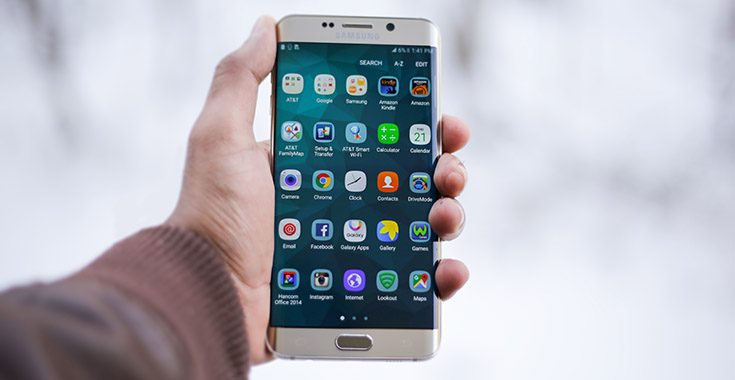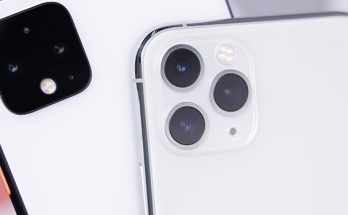Table of Contents
Every day more and more people are victims of hackers and data breaches. Their personal information is stolen and leaked, leaving them wide open to criminal hijacking, and identify theft. This is why it's more important than ever to make sure that you implement security features on your devices to ensure that your data is protected.
When it comes to Android devices, there are a few things that you should do to protect yourself and your information from being accessed without your knowledge. Let's review a few of these ways.
DNS Changers
Every time your device is connected to the Internet, your cellular or Internet Service Provider (ISP) can see what websites you are accessing. ISPs use a local DNS server to track this information on your browsing habits. A DNS, or Domain Name Server, is the Internet's "phonebook." It allows you to enter a domain name, like www.google.com, instead of the site's IP address, 8.8.8.8. Using the look-up function, when you enter www.google.com, your DNS correlates that to the appropriate IP address for the website and connects you to it. When you're using your ISP's DNS server, this is where they can get access to your information.
By using a DNS changer, you're able to bypass your ISP's DNS server and use a different one that they don't have access to. While a DNS changer won't change or block your IP address, and therefore your actual location, it will be able to prevent your ISP from snooping into your browsing history and gain access to your personal information.
Carefully Validate App Permissions
Every time you download an app from the Google Play store, you will be prompted to give the app permission to your data. Some apps require access to your camera, like Snapchat. Often these permissions are so that the app can function properly, but sometimes they ask for more than they need. Carefully read through the app permissions screen to see what you are granting access to. Don't give permission to access data that is unnecessary for the app to work. Use your common sense: for example, an app that is for checking the Weather doesn't need access to your text messages.
You should also note that the Google Play Store doesn't necessarily validate all apps that are posted for you to download, and may not be safe. Always check the ratings and comments before you download the app to verify safety. It's also good to understand what permissions the app is going to ask for when you're downloading it. Then you can immediately confirm if there are any unnecessary or questionable permission requests.
Lock Your Apps
Frequently you have apps on your phone that hold a lot of sensitive and private information, like your banking apps or credit card apps. This is definitely information that you want to prevent falling into someone else's hands. You can add an additional layer of security to these apps in the vent that you lose your device. While a hacker may be able to get through your device password, locking apps individually provides additional security.
You don't have to lock every app on your phone. However, the ones that are full of data, like your banking, email, and file managers, would be good candidates. You should also try to avoid using a pin or pattern lock since these are easily traceable because you'll leave smudges on your screen.
Prepare for Loss of Device
Of course, we hope this never happens. But if your device becomes lost or stolen, you should enable a few security features to secure your information. First off, if your device is lost or stolen, Android has built-in tracking technology so you can find where it is. The critical point here, though, is that you need to enable GPS for this to work. Fortunately, there are a few apps available for you to track your device in case you lose it, and some even feature the ability to turn your GPS on remotely!
However, you must make sure you've enabled the ability to wipe the data off your device remotely. If you lose your Android or it is stolen, and you're sure you're not going to get it back, you'll want to make sure you're able to remove all your data. This is also why it's essential to create a secure backup of your data. As a must-have feature, backing up your data will allow you to remotely wipe your device without losing all the information on it. If by some luck you're able to get your device back, your data isn't lost, and you can use it to restore your phone. Whether you choose to backup your information on a flash drive, your desktop, or in the Cloud, you'll have peace of mind knowing that if you need to wipe your device because you've lost it, you have a backup available for when it's returned.
Conclusion
Securing your information on your Android devices is of the utmost importance. Protect your privacy and browsing history, and remove the ability for your ISP to filter what content you can access with a DNS changer. Validate app permissions to ensure that you're only giving consent to what they need to function, and add an extra layer of security with app lock to highly data-oriented apps. Finally, if you lose your device, ensure that you can wipe it remotely.
With a back-up, you can do that without worrying that all your data is gone. Each day, hackers and other criminal entities come up with new ways to hack into your data. It's in your best interest to do what you can to ensure that you secure your information from being accessed without your knowledge or permission.


